Interview with Martha Lavey
Bruce: So this is going to be weird because I feel like you usually do most of the question asking when we talk.
Martha: I know, and it’s so nice not to have to generate any of that.
Bruce: Here’s my sort of leading question: Do you think there’s any such thing, aesthetically speaking—not politically or in terms of its intent—but aesthetically speaking that qualifies as good or bad art? Or is the question of good or bad art just a matter of taste?
Martha: I really don’t know how to answer that because I don’t know if I were to claim that I think that there are objectively speaking certain things that aesthetically qualify or disqualify something from being good art. I don’t know that I’m not just expressing taste. Here’s an example: a Jeffrey Koons sculpture, which I find repugnant—
Bruce: Are you thinking of a particular sculpture, or all of them?
Martha: Well, I don’t know all of them well enough, just large inflated—
Bruce: —bunnies—
Martha: —dolls, awful, you know, just awful. Yes, and you would say, is that art? And I would say, well no, that’s an advertisement.
Bruce: It’s just interesting that you pick that. Would you say the same thing about an Andy Warhol soup can painting?
Martha: No, and that’s possibly just because Andy Warhol is part of the art historical narrative with which I’m familiar. Maybe there are people who make passionate arguments for what it is that Jeffrey Koons is doing relative to the form itself and how ironical and playful he’s being with culture–
Bruce: Right, but there’s nothing about, say, the political intent of that art that you disagree with, or is there? It’s not that the artwork that—I’m going to use the loaded word—“offends” you on some political level?
Martha: No.
Bruce: It doesn’t engage you.
Martha: Yes. There are just certain materials, for instance, that I find awful to behold.
Bruce: Such as?
Martha: Well, I just gave you an example.
Bruce: Right, right. I’m heading in this direction partly because of the decision made last week about David Wojnarowicz’s video. [Wojnarowicz’s four-minute video feature “A Fire in My Belly” was removed from an exhibition at the Smithsonian's National Portrait Gallery in December 2010 after protests from a right-wing Catholic group and members of Congress. The video contains an image of Jesus on a crucifix covered in ants.]
Martha: Which I'm pretty sure you looked up on YouTube and saw the ants crawling and Jesus, didn’t you?
Bruce: Sure, of course. But I guess the part that got it in trouble was the crucifix per se and not all the rest of the imagery, which was all over the place.
Martha: Yes, the thing that was cited was the ants crawling on Jesus.
Bruce: Right. Clearly what people were responding to, the reason that piece of artwork was removed from the exhibition at the National Portrait Gallery, was people’s political objection to it, and not just that there was a taste objection.
Martha: Right.
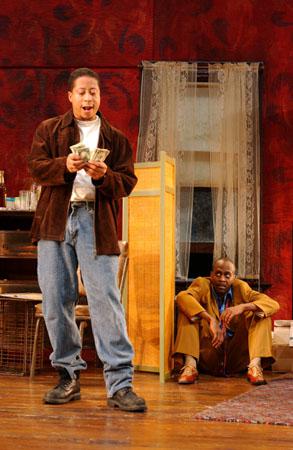
Photo courtesy of Steppenwolf Theatre.
Bruce: Then the question is, if you and I (by virtue of being white, liberal, privileged heterosexuals) can’t be politically offended, can we be aesthetically offended? I use the word “offended” because something comes up in Clybourne Park, it’s a word I think about a lot: “offense,” what it means to me as a white man. Can I take offense at something, and so, I’m also curious as to how it comes up in the context of a Steppenwolf season. If anyone from an audience, or a board member, or the actors from the company comes to you and says “Martha, I find this either to be offensive from a political point of view or an aesthetic point of view,” and which is easier to handle?
Martha: I’m trying to think of an instance where someone said “politically, I find this offensive.” I don’t know that that’s happened, or maybe it hasn’t happened to me specifically, although, I am sure that there are people who have been politically offended by our work—
Bruce: I think you’ve told me in the past that comments you heard about Topdog/Underdog upset you.
Martha: Part of that was political. One of our board members—she may not have been on our board yet—an African-American woman, probably around sixty at the time, and a person with a lot of cultural capital in terms of her work, her upbringing, and her education, was really offended by our doing Topdog/Underdog because she felt that Steppenwolf rarely presents works by African-American writers, and if that is true, why is it that we would choose to represent characters who were, you know, the discourse between them was this, you know, why do that? So obviously she was reading a kind of politic into our presenting it as a majority white theatre.
Bruce: And since Steppenwolf rarely presented at that point—and still somewhat rarely presents works by African-American writers—what was it about that play that made you choose it, say, over other plays by other African-American writers?
Martha: To be honest, one of our ensemble members, K. Todd Freeman, who played the role, was very passionate. I mean you and I had seen the play together! And I just thought it was really a persuasive theatrical experience, and when K. Todd brought the play to me with a real passion and said “I really want to do this,” I said sure.
Bruce: Yeah, I think one of the weird and interesting aspects of your job at Steppenwolf is that you actually, unlike the majority of artistic directors, have to balance both the needs of an audience with the needs of a company of actors who come to you from time to time with projects that they want to do. And in your decision-making about that, how do you determine which factor predominates? Obviously there’s no formula for making these decisions—
Martha: There is no formula, Bruce, and that’s where the filter of my taste probably has a very big influence even though we’ve done plays that I don’t like, but there are maybe some situations where I just think something isn’t a good idea.
Bruce: Over the fifteen years that you have been artistic director do you think that you have had more of an influence on the taste of Steppenwolf or the other way around?
Martha: I think it’s probably an exchange. But I will tell you, it’d be interesting to ask other people in the ensemble because I think some people would say “Oh, decidedly, you’ve left your imprint taste-wise,” and some people would say that in a way that was issuing approbation and others strongly disapprobation. I remember when I was first artistic director some of the plays that I was either suggesting or that I had in fact programmed, some of the original core members said things to me like: “This is kind of brainy, this isn’t what Steppenwolf does, all of our work is visceral and immediate and…” But enough time has passed and there have been enough examples to I think ameliorate that somewhat.
Bruce: Do you feel like when you came in to take over the job that your hiring was influenced by what was perceived to be your taste?
Martha: No, I think it was a cultural thing. I always say that the founders were really responsible for the change of leadership. They asked other members of the ensemble, and I think probably that Frank Galati was actually very persuasive in my being named artistic director because I know that our founders came to him for counsel. And I know that he—I mean he doesn’t say this to me—but I know that he suggested that I would be a good choice. At that point I was an ensemble member but I was also an associate.
Bruce: Right.
Martha: I think you know that I had never held a leadership position in an artistic institution, of course not, I mean, I had been a babysitter, a waitress, a receptionist, an actor, and I taught while I was in graduate school. But I think that they felt that they were betting on that the learning curve of being an artistic director was possibly less steep than the learning curve of the culture of Steppenwolf.
Bruce: So in way you think that they overlooked what they thought was maybe a cultural or taste difference between you and the core of the ensemble and hired you on the strength of what they thought from a personality point of view you could do in the job, is that fair to say?
Martha: Oh, my personality. I hope that maybe they thought “Well, she’s an incredible actor.”
Bruce: Ha. Are there things that you see the company do now that you feel like fifteen years ago you might have turned your nose up at and said I don’t see the value in that but now I do? Or has your taste narrowed a little bit?
Martha: I think probably my taste has, and it’s impossible to cite the influence, you know, what the influence is on an actor. I think that I am more embracing of more populist work than I thought, than I thought was my way, you know?
Bruce: When you and I met, I think you were involved with a lot more what perhaps would be described in an old-fashioned way as experimental theatrical projects, performance art, things like that, and that it seems by necessity has gone by the wayside as you found yourself working in a much more popular arena.
Martha: Right. The question is the earlier fascination with performance art and experimental form, is that just a phase—a pretty predictable phase in the trajectory of a person engaged in theatre who’s educated in a particular way? Or you know, is it Steppenwolf that drew me? But quite honestly right now, when I go to see theatre I want a good story, I want characters that really intrigue me. I like to laugh, I like to cry.
Bruce: Yes. And when you were, say, twenty-eight years old, would you have had difficulty making that statement?
Martha: I don’t know. All I do know is that the first time I saw a Steppenwolf play, which was Say Goodnight Gracie, directed by Austin Pendleton, with just this incredible cast of people, including John Malkovich and Fran Guinan and Joan Allen, and I saw that, and this was the year after I graduated college, or the year I graduated college, and I said: “If I could ever act that good, or act with people who were that good, I would really be happy.” So obviously that had a huge impact, and seeing early Steppenwolf work, like Balm In Gilead, those were some of my favorite experiences in theatre.
I’ve felt that, reading a play for instance, where you thought, okay the play is sort of a mess, or it doesn’t really work or something, but... I always associate it with a sense word—you just smell talent.
Bruce: It’s funny because when you talk, when we talk about skill, I think that would be what drove a lot of people to Steppenwolf in the early days, that everyone was admiring of the skill with which they did these plays like Balm In Gilead, True West. I think the majority of people gravitate around certain definitions of what is good and bad, and we tend to attribute to those people who are examples of that style—we call them skillful, or talented. I wonder if you think there is something intrinsic that we observe—because I tend to reject the notion of talent, per se—but that is something people tend to say ”that person is very talented,” or “this person is very skillful,” whereas in sports there are objective criteria for measuring skill that in the arts there aren’t.
Martha: You reject the notion that there is such a thing as skill?
Bruce: Well, I mean, there are very few ways in which I could say conclusively that a person lacks artistic talent because I don’t know how to define what that is.
Martha: I guess I’m just willing to be more careless than you. I use the word talent. I’ve even said of plays, “the play has tremendous talent.” And I think that I watch actors, and one can talk about skill, and one can even talk about skill sort of detached from how effective the point of the skill is, do you know what I mean?
Bruce: I used the word skill to describe early Steppenwolf productions, but that was a description of the execution in a way, and not really a description of impulse, perceived impulse. Maybe what you’re calling talent is something more like a kind of perception that there is an impulse behind the project, be it acting or playwriting, that it is compelling.
Martha: I’ve felt that, have you felt that, reading a play for instance, where you thought, okay the play is sort of a mess, or it doesn’t really work or something, but you just know, I mean, a better word is, I always associate it with a sense word—you just smell talent. You want to maybe contact that person or you want to read another thing by that person, even though you’re really saying I don’t want to, I don’t think we should produce this play.
Bruce: For me, I would say there’s just something about the way this person does that happens to resonate with what I do or what I personally enjoy. And I wouldn’t go the next step and say of that person, “well they’re clearly talented.”
Martha: You’re saying “talent” tries to make what is taste seem objective?
Bruce: Right. Right.
Martha: No, I’m not covetous about whether there’s like free-standing objectively admired talent.
Bruce: Part of this comes up for me because having just served on the Wasserstein Prize panel, and being upbraided for the panel’s choice not to give out the award this particular year. Some people felt very strongly that the Wasserstein committee had a responsibility to be giving out this award by virtue of the fact that they had made a public announcement and that the people who were the judges on this committee clearly didn’t know what was good and bad. Essentially that we were old farts who didn’t know any better and by virtue of being friends of Wendy Wasserstein’s that defined us as people with bad taste.
This next question relates to some of the claims that were made in Todd London’s book, Outrageous Fortune, which I want to say I haven’t read but I attended a meeting at which many people spoke about the book. Have you read the book?
Martha: Yes.
Bruce: Do you feel there is any systemic bias or unfairness towards playwrights? I ask this because I think the conclusion of the book was: good, worthy plays by talented people (all loaded words that we’ve talked about) are not getting produced. That is also the accusation that was leveled against the Wasserstein committee—that we’re not finding the good plays, they’re out there but you haven’t found them. I wonder if you think there’s a) any truth to that, and if there is, then b) what is the nature of that systemic bias?
Martha: Well, I don’t know that it’s a systemic bias—
Bruce: Not intentional, I’m saying it’s an unintentional bias.
Martha: I think the point the book was making to me was that something about being an artistic director can encourage one to gravitate towards the known and what is perceived as the safe. This is kind of a generic complaint that would be issued by any artist, right? Institutions have a tendency to make conservative choices, they use certain parameters to make their decisions. Is that true? Well, I’m sure it is, and for theatre it’s true to varying degrees.
Bruce: Right.
Martha: Other people are obliged to say look, I have to have range in my season, I have to hit these notes. Other people may say I know my audience and there are certain things that just culturally, religiously, whatever, they’re not going to tolerate politically. I mean, I don’t think that we at Steppenwolf have those kind of filters necessarily. Our filters may be around the kind of aesthetics of the piece or the kind of component of the piece. We tend to do work that is linear in narrative and character driven. When we do work that’s not, say, Frank Galati’s adaptation of Kafka On the Shore, which is based on the Murakami novel and the structure is therefore more—
Bruce: —literary.
Martha: Well, it follows that the same kind of oscillation that Murakami explores in the book, these kind of dream-like sequences and there’s a strange inter-penetration of the fantastical and the real. So the metaphor for that onstage follows certain things staging-wise or just in terms of certain things being discontinuous that didn’t cooperate with the narrative-driven character-driven work.
Bruce: Right.
Martha: And there were people, who of course said “God, I loved it! I loved it!” and there were people who said “That thing, I just didn’t like that at all.”
Bruce: But of course, that’s a—to use a stupid word—an experimental project initiated at Steppenwolf by one of the ensemble members. I guess the question perhaps for Todd London and the other people reading that book was: If someone were to bring you Kafka On the Shore from outside, would it get a hearing, or would that necessitate someone like Frank bringing it to the theatre?
Martha: Probably necessitate Frank. You’re not an ensemble member but you’re an ensemble cousin, so any play you bring to us we’re going to be interested in. Why? Because they’re fantastic plays and you have a relationship with our audience and our artists.
Bruce: From sitting in on these meetings with Todd London and writers, I felt like one of the things that really came out of it was the virtue of writers having an ongoing relationship with a theatre. Because then the dialogue between actors, directors, and writers can tend to unfold over a period of years, which is the amount of time it takes for writers to write plays.
Martha: Exactly right, which I know is the effort that David Dower is so engaged in at Arena, the Mead Center for American Theatre, having four writers in residence.
Bruce: Yes, and you don’t know, you can’t know in advance whether or not there is a felicitous outcome to that relationship.
Martha: You know, if someone sent me a Bruce—okay, you know I would recognize your writing but —it’s because I know and trust you. But some of the plays, let’s say one of your earlier ones we did—The Pain and the Itch, well that’s a little dicey, right? If some anonymous person sent that to me, I would probably feel I don’t know if we should stick our neck out for this. But if it’s you, with whom we have an ongoing relationship, of course. I mean, in other words, knowing the writer makes one, makes the theatre brave.

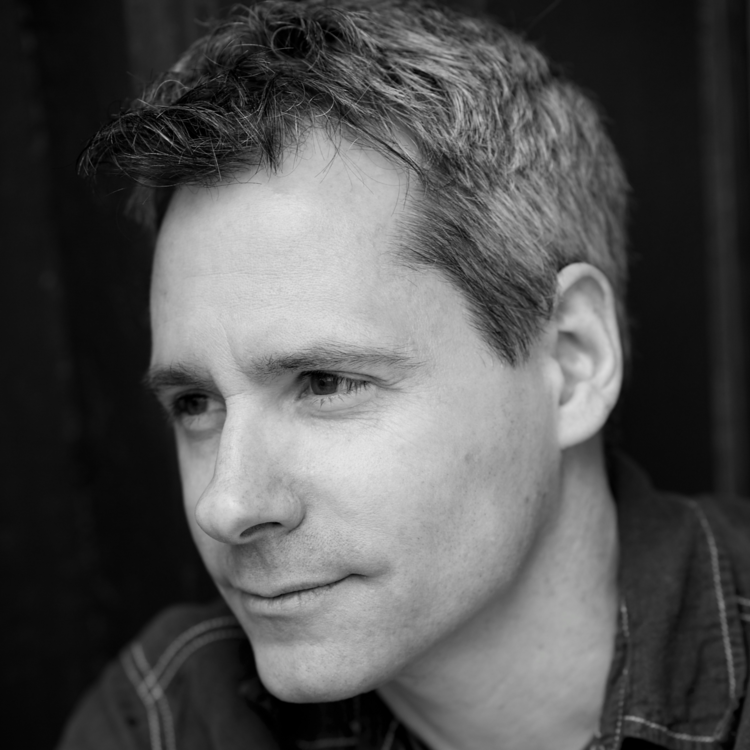
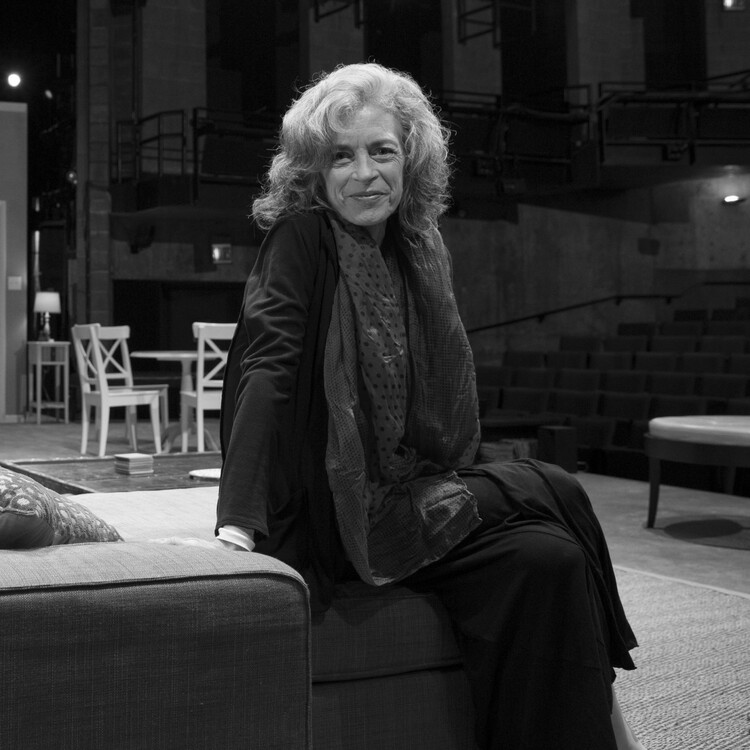



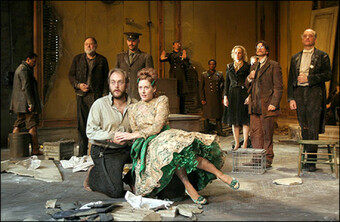


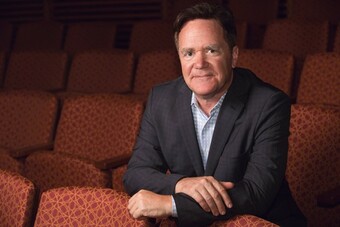


Comments
The article is just the start of the conversation—we want to know what you think about this subject, too! HowlRound is a space for knowledge-sharing, and we welcome spirited, thoughtful, and on-topic dialogue. Find our full comments policy here
Illuminating indeed:
I found especially illustrative the treatment of the social dynamics of artistic decision making. When the work involves collaboration, objectivity seems to become the more distant. The social compact among collaborators weighs heavily in any decision-making process.
I greatly appreciated the forthrightness with which Ms. Lavey addressed this subject. It underlines the ways in which any pretense of objectivity in artistic decision making--be it in apprehending art or in creating it--must be informed by discipline and broad exposure to variegated forms. Only with such exposure can a credible, if not purely objective, decision-making process emerge.